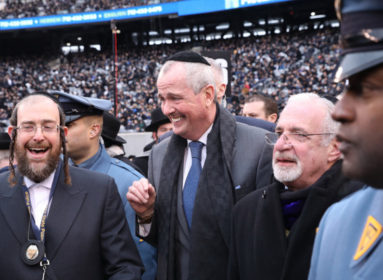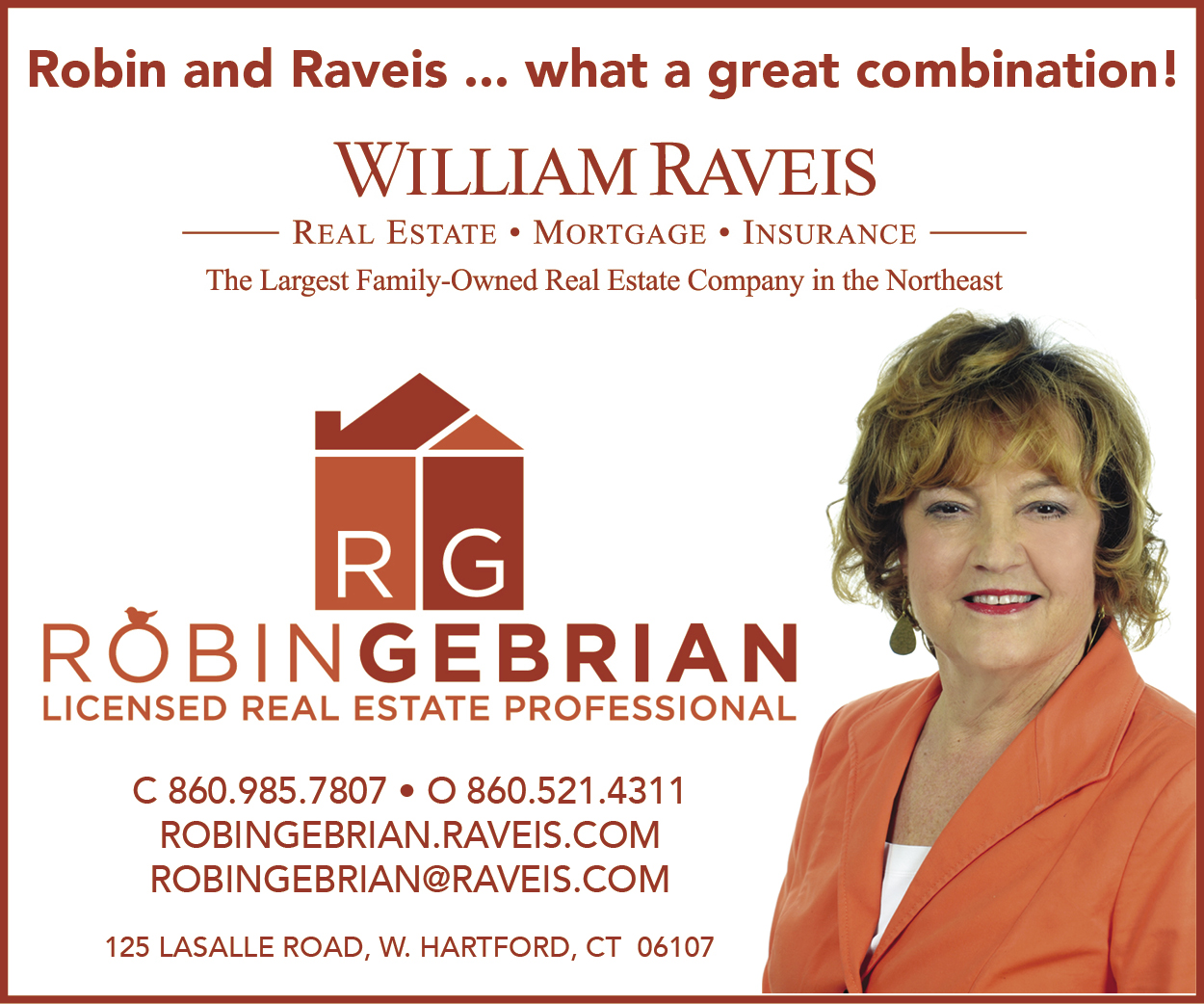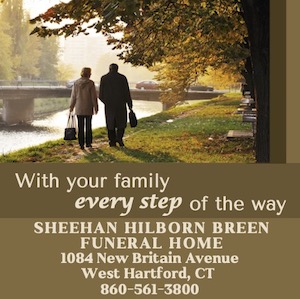Last week, the Ledger introduced three rabbis who will stepping up to the pulpit in synagogues across Connecticut. This week, Ledger reporter Cindy Mindell writes about two more clergy – one rabbi and one cantor — who are settling in at their new congregations this summer.
~~~~~~~~~~~~~~~~~~~~~~~~~~~~~~~~~~~~~~~~~~~~~~~~~~~~~
Rabbi Jay TelRav
Temple Sinai, Stamford
First, a word about the rabbi’s unusual surname. “TelRav” is an egalitarian, Hebraicized amalgamation of his wife Julie’s last name, Knoller, translated as “knoll,” or “tel” in Hebrew, and his last name, Raben, Polish for “rabbi.” A native of West Bloomfield, Mich., Jay Raben never thought about becoming a rabbi until he began undergraduate studies in engineering at the University of Michigan.
“I was searching and decided that engineering was not going to be the right choice for my soul,” he says. A trusted mentor told him that he would be a rabbi. “We both laughed it off, but he planted a seed that germinated over the next several years,” TelRav says.
After graduating with a degree in psychology, TelRav spent two years in Israel, studying at the Pardes Institute in Jerusalem, volunteering, and working on an archeological dig. He met his wife,
Julie, an American studying in Israel, and decided to attend rabbinical school.
“I believe in the concept of a ‘calling,’ looking at the skills and passions and abilities God gave us,” he says. “I’m good with people, I’m a pretty good teacher, and I enjoy being actively involved in my
Jewish identity. When you triangulate those three passions, a rabbi seems an obvious choice. I had some great rabbis growing up and the thought of assuming the same title as those esteemed gentlemen took awhile to accept.”
TelRav attended the Hebrew Union College- Jewish Institute of Religion in Jerusalem and New York City. Following his ordination in 2007, he served as assistant rabbi at Temple Sinai in Denver, Colo. for five years.
It is the development of meaningful relationships that most inspires TelRav in his work, “the pursuit, with others, of meaning in their lives; the pastoral care: being with people at their highs and lows,” he says. “I also love teaching, exciting students of all ages in the subject matter, and I love helping to create worship experiences that are powerful for the participants.”
Last year, while reviewing openings throughout the Reform movement, TelRav was impressed with how Temple Sinai in Stamford described itself. “On paper, it sounded like the best fit,” he says. “In describing what they want in a rabbi, they wrote that they’re looking for spirituality, which is what I’m looking for as well. The congregation is the right size; I was coming from an 1,100-family congregation and hated being approached in the supermarket by someone who would say, ‘Rabbi, you don’t know me, but I’m one of your congregants.’ I couldn’t get to know everyone. Serving a smaller synagogue really allows me to get to know people, which is essential to my rabbinate.”
When they visited Temple Sinai, the TelRavs realized that it was the kind of synagogue they would join if they were new to town, and it felt like a good place to raise their son, Amitai, 1½.
At the core of TelRav’s rabbinic approach is the sense that institutional Judaism has drifted from some of Judaism’s best attributes as a religion. “We have abrogated a lot to the professionals,” he says. “Worshipers are passive and let the clergy do the praying and dutifully wait it out – maybe there will be some good music or an interesting sermon. I would like to empower members in their sense of ownership, expand educational engagement around the experience – how it’s supposed to work and how to affect those changes.”
To that end, TelRav’s approach is innovation based on tradition. “The traditions we’ve enjoyed for centuries are so powerful, but if they are packaged the way our grandparents’ rabbis packaged them, they may be outdated and even alienating,” he says. “Through warmth and accessibility to ancient ritual, I look forward to introducing the community to glimpses of that tradition.”
~~~~~~~~~~~~~~~~~~~~~~~~~~~~~~~~~~~~~~~~~~~~~~~~~~~~
Senior Cantor Dan Sklar
Temple Israel, Westport
Anative of Northbrook, Ill., Cantor Dan Sklar grew up in what he describes as a “very classical Reform congregation” in the Chicago area. “Even as a young adult, I found services and the clergy to be intellectually stimulating and the temple was and remains a spiritual home,” he says. “But I wasn’t as enamored of the music of the Reform movement in those years. It’s not that it was all the Union Hymnal, but there was a ‘same-ness’ to the music that left me uninspired.”
That inspiration would come later. After earning a Bachelor of Music from Oberlin Conservatory in Ohio, Sklar moved to New York City, where he worked as a musical-theater actor and began singing in Jewish choirs. “I had some profoundly moving musical experiences, most notably singing in professional choirs under the direction of Matti Lazar in synagogue settings,” he says. “I think that shul-hopping in New York City gave me the Jewish musical experiences I craved when I was younger and I became aware that Jewish music could be inspiring and deep.”
In 2001, Sklar began cantorial studies at the Hebrew Union College-Jewish Institute of Religion School of Sacred Music. While there, he attended classes for rabbinical students, to satisfy his interest in rabbinic literature. Upon graduation from cantorial school, he was accepted to the rabbinic program and ordained in 2008.
Since then, Sklar has served as rabbi and cantor at Westchester Reform Temple in Scarsdale, N.Y. He lives in Westport with his wife, Cantor Shirah Lipson Sklar of Temple Shalom in Norwalk, and their 3-year-old son, Ari.
As a student cantor, Sklar worked in Jewish communities large and small, from Reading, Pa. to Binghamton, N.Y. to Manhattan and Westchester. “These experiences have given me a broad cross-section of Reform Jewish life,” he says. “While the differences are many, there is a common thread in that the Reform Jewish congregant today is looking for a very personal connection to Jewish
life, and at the same time, he or she wants to feel part of a community. Jewish music is the bedrock in any community. It’s how we define our worship styles and our Judaism and I’m thrilled to be able to add my voice to this generation and to the generations of cantors that have come before.”
Sklar sees the cantor as “uniquely poised to foster community and uplift worship through music.”
“The modern cantor should employ an eclectic mix of Jewish music, from congregational to art music, reflecting the depth and breadth of the long and varied musical expressions of our people,” he says. “As cantor at Temple Israel, I hope to be fully integrated into the life of this community — building relationships, strengthening ties to Torah and Judaism, and facilitating meaningful spiritual experiences for congregants of all ages”
Sklar is still a card-carrying member of Actor’s Equity Association and is an accomplished musician on guitar and piano, and plays “a little accordion, which always comes in handy for Chanukah and
Passover songs,” he says. He is also passionate about microphones and recording, as well as digital photography. As a Chicago native, he’s been an avid skater ever since he could walk.








 Southern New England Jewish Ledger
Southern New England Jewish Ledger











